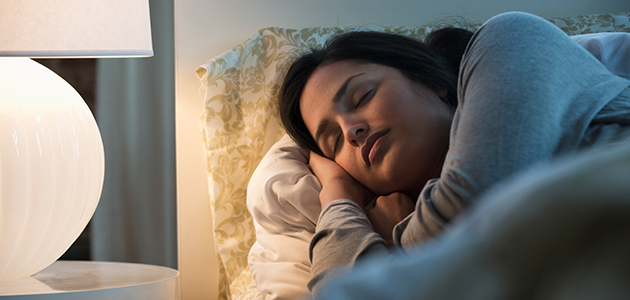You’ve probably heard the old adage, “you are what you eat.” Well, it’s true! What you put into your body dramatically affects how it performs, how you feel and, importantly, how you sleep.
Eating all the right foods isn’t going to guarantee that you’ll get a good night’s sleep – there are many reasons why sleep can be hard to come by, including chronic pain and other physical and mental health issues — but some food choices may be able to help you get the rest you need. It’s especially important to pay close attention to what you eat in the hours before going to bed, because what you snack on has the potential to help you snooze soundly or keep you up half the night.
Remember, if you find yourself regularly struggling to get a good night’s sleep, talk to your doctor to rule out any underlying conditions and to get the help you need. It’s also important to speak with your doctor before making any major dietary changes.
While there is a lack of conclusive evidence about specific foods that help with sleep, studies have shown that some foods can make you sleepy or promote a more restful night’s sleep – even if researchers aren’t completely sure why.1
But since these foods are known to have health benefits beyond their ability to help you nod off, they’re great to include in your diet – especially before bed. Just make sure not to eat too soon before lying down as that can aggravate acid reflux. Experts generally agree that it’s wise to refrain from eating three hours before bed.2
What to eat for sleep
Eating a healthy, balanced diet like the Mediterranean diet, which consists of mostly fruits and vegetables and a small amount of lean protein, is a good idea for everyone, but particularly those who struggle with sleep issues. That’s because this diet provides a good source of the essential vitamins and minerals that are known to help promote sleep. The Sleep Foundation website3 also suggests that the following food choices may help you get a better night’s sleep:
Kiwi fruit
Kiwis are delicious little fruits that are packed with vitamins C and E as well as potassium and folate. It may be their antioxidant properties, their ability to help address folate deficiencies in the body, or the fact that they’re rich in serotonin that helps those who eat one or two an hour before bedtime fall asleep quickly, sleep longer and enjoy a better quality of sleep.
Tart cherries and tart cherry juice
Tart cherries, sometimes called sour cherries, have above-average concentrations of melatonin, which is a hormone that helps to regulate your circadian rhythm (a natural internal process that regulates the sleep-wake cycle). Melatonin also promotes a healthy sleep. Drinking two one-cup servings of tart cherry juice per day may help improve your total sleep time.
Malted milk drinks and milk
In addition to added sugar, which is something people living with diabetes should be aware of, a malted powder like Ovaltine or Horlick’s has an assortment of vitamins, particularly B and D, that may help reduce sleep interruptions. Milk itself also contains melatonin, a sleep-producing hormone, which makes a malted milk drink a good option for a pre-bedtime beverage.
Fatty fish
Studies have shown that people who eat salmon three times a week over a period of months have better overall sleep. The vitamin D and omega-3 fatty acids in fatty fish are the likely reasons for its ability to help you sleep because they are both involved in the body’s regulation of serotonin.
Nuts
Walnuts, almonds, pistachios and cashews are good food for sleep, but consider buying them raw and unsalted to preserve their healthy fats, antioxidants and vitamins, and to reduce your sodium intake.4 Nuts are rich in essential minerals like magnesium and zinc, as well as melatonin, and this combination has been shown to help older adults with insomnia. A serving of nuts is one ounce, or ¼ of a cup, so just grab a small handful for your bedtime snack.
What to avoid if you’re having trouble sleeping
The two biggest culprits responsible for interrupted, poor sleep are caffeine and alcohol. Moderation is key; you don’t have to eliminate them entirely, just avoid overindulging and don’t drink either beverage too late in the evening.
Diet is just one piece of the sleep puzzle. Meditation, creating good sleep hygiene habits, and physical sleep aids may also help you get those all-important Z’s.
SOURCES
1 https://www.sleepfoundation.org/nutrition/food-and-drink-promote-good-nights-sleep
2 https://badgut.org/information-centre/a-z-digestive-topics/gerd/
3 https://www.sleepfoundation.org/nutrition/food-and-drink-promote-good-nights-sleep
4 https://www.nuturally.com/magazine/en/nuts-better-natural-and-unsalted/.
419973 CAN/US (07/21)




